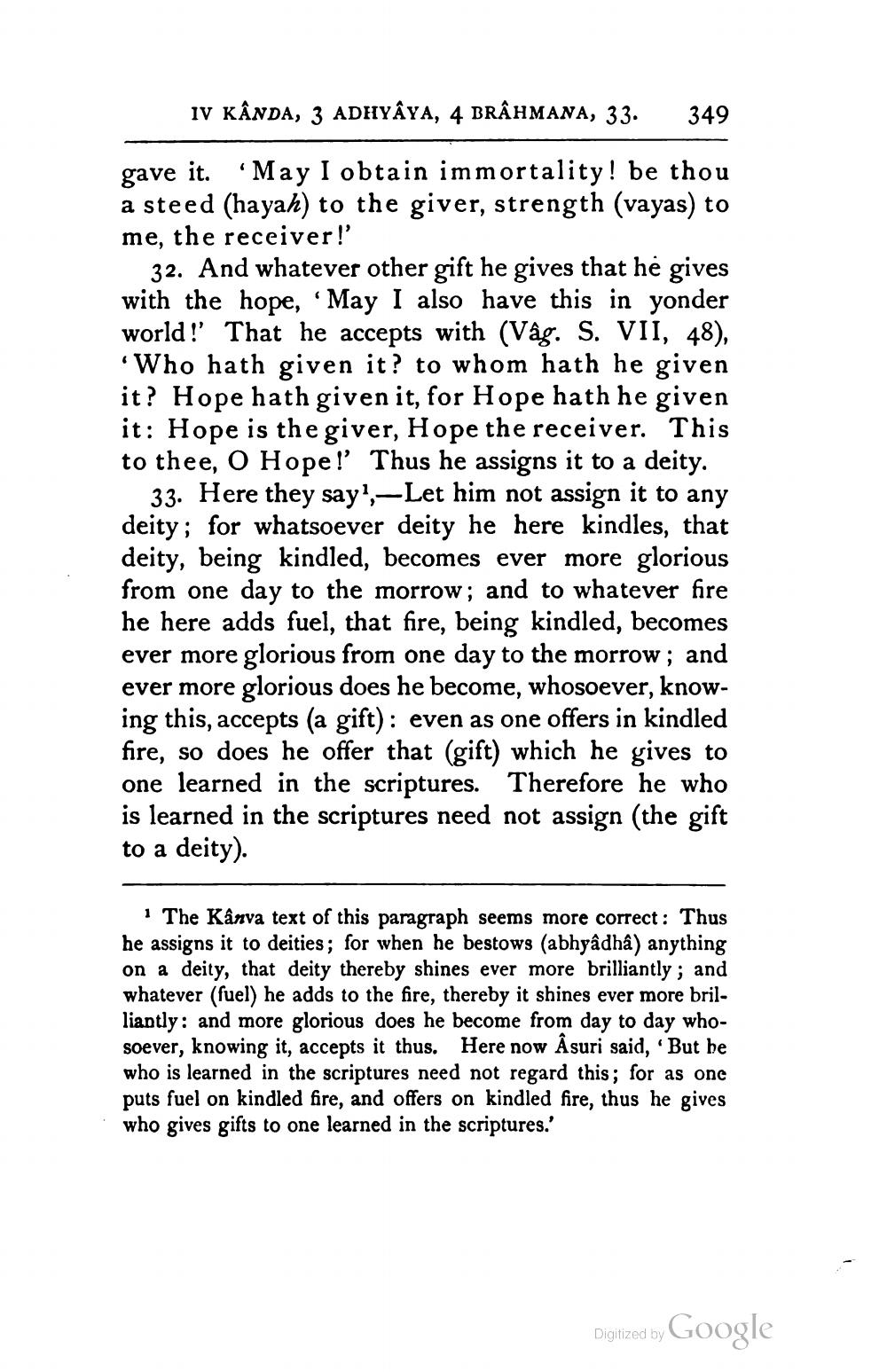________________
IV KÂNDA, 3 ADHYAYA, 4 BRÂHMANA, 33.
349
gave it. May I obtain immortality! be thou a steed (hayah) to the giver, strength (vayas) to me, the receiver!'
32. And whatever other gift he gives that he gives with the hope, “May I also have this in yonder world!' That he accepts with (Vág. S. VII, 48), •Who hath given it? to whom hath he given it? Hope hath given it, for Hope hath he given it: Hope is the giver, Hope the receiver. This to thee, O Hope!' Thus he assigns it to a deity.
33. Here they say', -Let him not assign it to any deity; for whatsoever deity he here kindles, that deity, being kindled, becomes ever more glorious from one day to the morrow; and to whatever fire he here adds fuel, that fire, being kindled, becomes ever more glorious from one day to the morrow; and ever more glorious does he become, whosoever, knowing this, accepts (a gift): even as one offers in kindled fire, so does he offer that (gift) which he gives to one learned in the scriptures. Therefore he who is learned in the scriptures need not assign (the gift to a deity).
The Kânva text of this paragraph seems more correct: Thus he assigns it to deities; for when he bestows (abhyâdha) anything on a deity, that deity thereby shines ever more brilliantly; and whatever (fuel) he adds to the fire, thereby it shines ever more brilliantly: and more glorious does he become from day to day whosoever, knowing it, accepts it thus. Here now Asuri said, But he who is learned in the scriptures need not regard this; for as one puts fuel on kindled fire, and offers on kindled fire, thus he gives who gives gifts to one learned in the scriptures.'
Digitized by Google




